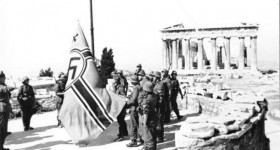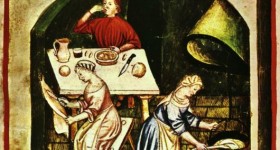Ancient History Competition 11
There have been complaints that the previous competition was way too easy! So, here goes a new, improved and difficult quiz
He is roasting you alive in a bull made of brass. And you’re thinking (!): ‘I shouldn’t have pissed off this tyrant’.
Who is this tyrant?
Economic historian and numismatic consultant



Phalaris of Acragus.
My book research has led me to list all manner of exotic ways to die in Ancient Greece, so I’m afraid I have this on my cheat sheet.
Incredible! I cannot believe you found it. You have quite a book research there. What on earth are you writing about?
One minor correction: is it not Acragas (=Agrigento).
I write a murder mystery series set in Classical Greece. My detective is Nicolaos, the elder brother of Socrates, so the bull is 100+ years before my stories, but you never know when something like that might be useful.
Constantina we need to redefine the word ‘difficult’. I am prepared to give new meaning to the word with my next quiz!
In my case at least, if you ask even a simple question about poetry or philosophy I won’t have a clue. But if you ask about Persian methods of execution, or how to extract ancient posions, or how to pull a maritime insurance scam in ancient Greece, or how inheritence works under Classical Athenian law, I’ll totally get it.
I just now got to the competition question and came too late!!
I cannot wait for the next quiz.
Acragas vs Acragus…I tend to use -as and -us almost interchangably when transliterating, depending on what sounds best in English. Is there some rule about this?
Acragas is a Greek city with a Greek name. I would use this form instead of Acragus, which sounds latin but it is not.
Acragas is correct. Acragus is not. In this case the -us ending does not apply. In Latin it’s “Agrigentum” (I think ).
Latin usage seems to vary. Greek Akragas may be directly transliterated (and declined as a Greek noun, like Chalcas) as Acragas (Vergil, Aeneid 3.703; Ovid, Fasti 4.475, Pomponius Mela 2.118) or occasionally Agragas (Pliny, NH 3.89), with adjective Acragantinus (Lucretius 1.716; Valerius Maximus 4.8(ext).2; Cicero, Tusculan Disputations 5.65); but the native Latin form is Agrigentum (Pliny, NH 3.89; Cicero, De republica 3.45 and In Verrem 2.63 and often thereafter), with adjective Agrigentinus (Cicero, Laelius de amicitia 24; Livy, AUC 36.31.12; Pliny, NH 31.85). Agrigento is the modern form, though Lewis & Short say “Girgenti”.
I’m a parent of a 9th grader who is very interested in History. I’m wondering if you know of any programs or competitions related to History for kids. I’d appreciate any info you could share.
I am afraid I am not aware of any. I would like to urge the readers of this blog to respond, if they have any information.